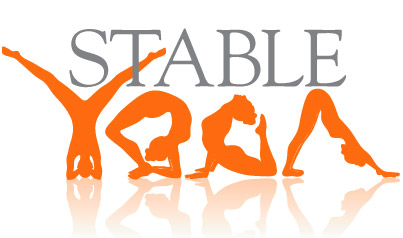- Posted by clereadmin
Thoughts on Meditation
Words: James de Albuquerque
I read an article by the respected author Deepak Chopra where he said that ‘the promise of meditation is so alluring that its hard to find someone who hasn’t tried it’.
Well, in 2014, after five years of practicing Yoga, I did try it. I went on a Meditation course run by one of the teachers at my local yoga studio. Unfortunately, I missed the introductory lesson where the numbers were greater, so ‘caught up’ later when the numbers were fewer (one other). I did struggle and I did not find it easy. I learnt more about Imposter Syndrome than Meditation at my first lesson. I was expecting more. Something instant and seismic. I did not want to discourage my teacher or admit that sitting quietly and breathing in and out had not actually stopped my mind from spinning around and bouncing from one subject to another for more than a few minutes (it was probably seconds). I soon learnt that meditation requires dedication. I had signed up for a course and there were more lessons ahead. There would be more participants at the next one, more anonymity and I was sufficiently interested to keep going.
Deepak Chopra went on to say ‘It is also rare to find someone who has stuck with it for any length of time’. Well, its 2024 and I did : at home, in the garden, in Winchester Cathedral in a side Chapel, on the decking of a hotel overlooking Lyme Bay and on assorted beaches. To begin with I was embarrassed (very embarrassed) if I was spotted, sitting alone with my hands in my lap, palms upwards, and my eyes closed, doubtless with a funny look on my face. Peace within depended upon Peace without. I recall once sitting on a beach in the early morning when the rest of the world was fast asleep. There was no one in the whole Mediterranean. Suddenly I heard a splash. I opened my eyes and saw a naked person going for an early morning swim. I closed my eyes again very quickly for a couple of reasons, one of which was : How much better to be seen meditating than peeping.
Some teachers say that the original purpose of Yoga was to prepare the body for meditation. The intention was that all those asanas/poses would enable us to sit for longer periods in meditation. Meditation is a technique to calm the mind. The goal is awareness. Thoughts will disturb your peaceful mind but you should not dwell on them. Let them go floating by and focus on your breathing – fast, slow, rising, falling, shallow, deep, long, short, cold air coming in, warm air going out. Your breath is your anchor, just as it is in your Yoga practice, helping to steady you and enabling you to fully enjoy the activity.
There is no right or wrong – it is a practice. Hopefully it will teach us to see things more clearly and so help us to treat life, ourselves and others with more kindness, patience and compassion.
The beauty of meditation is that it enables us to go within. There is no call to be anyone but your true self. No one to convince, no one to influence, no one to impress, no one to worry about. There is just you. “The quieter you become, the more you will hear”.
Rasheed Ogunlaru, a life and leadership coach who extolls the virtue of ‘becoming who you are’ is quoted as saying ‘peace of mind arrives the moment you come to peace with the contents of your mind’. I can not claim to have reached a level yet, with which I am satisfied but I have learnt the importance of patience with meditation.
I recall being disappointed with myself when my true self did emerge during a guided meditation at the end of a Yoga class. We were asked to imagine sitting in a peaceful place by the side of a lake. Imagine a warm day relaxing in the sunshine, dangling your feet into cool water. Imagine a person walking along a jetty and coming towards you carrying a basket. I was now imagining a picnic basket and hoped she would pull out a baguette. I realised, to shame, I had left the guided meditation and begun my own fantasy. We were actually being asked to imagine the person reaching into the basket and pulling out some smooth/ cool round stones - an example of ‘wandering thoughts’ disturbing a practice. In her book ‘Yoga Mind, Body and Spirit’, Donna Farhi writes ‘your mind may be gallivanting back and forth from past to future imagined events – elaborating, dramatising and catastrophising as it goes, completely oblivious to the reality of the situation, which is………that you are sitting still breathing.
Deepak Chopra concluded his article saying that with meditation you are training your mind to recognise its normal state - ‘that’s all any meditation is meant to do, to reconnect you to the state of awareness you are meant to be in before all the distractions, demands and stresses conditioned you to be disconnected’.
I found it is well worth the effort.
James is still enjoying the magic of Yoga after fourteen years of practicing. He is married with three daughters and four grandchildren and lives in Hampshire.







